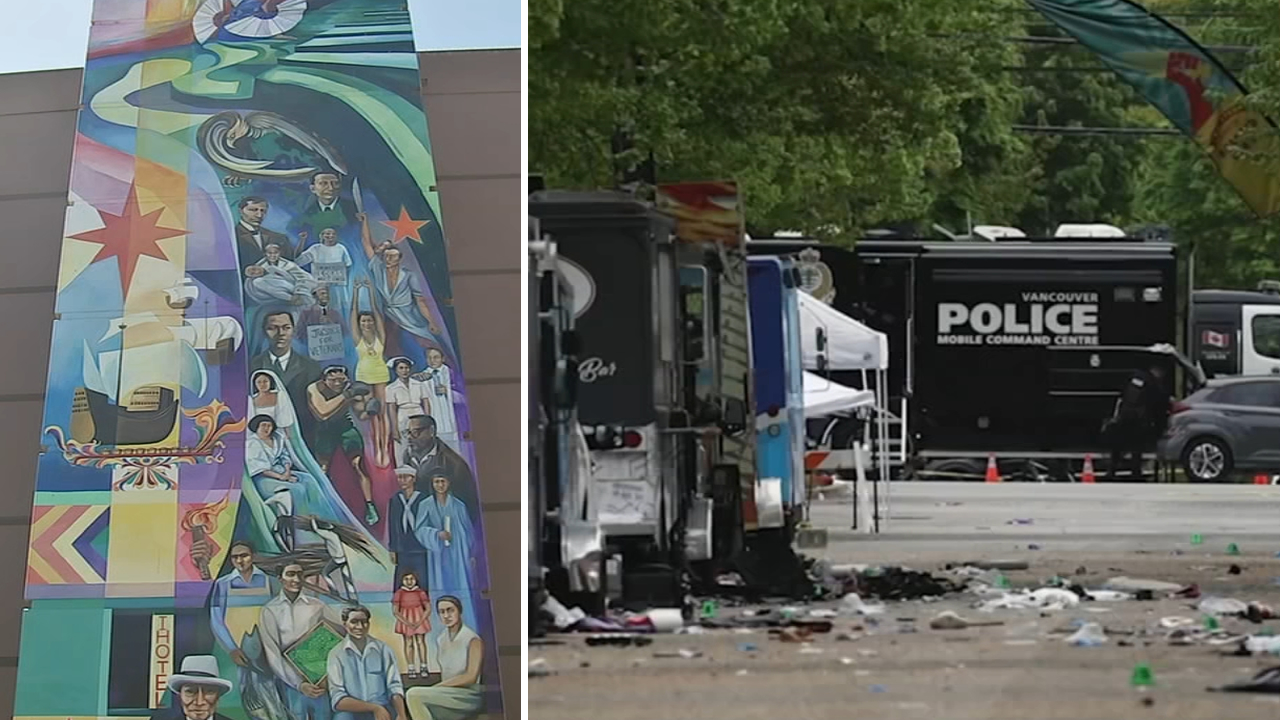San Jose's Obon Festival returns in-person, but will be scaled back
"Obon" is a Japanese Buddhist tradition, dedicated to remembering and honoring the dead.

SAN JOSE, Calif. (KGO) -- This weekend is expected to be a busy one for San Jose's Japantown. The popular Obon Festival returns to its in-person roots on Saturday and Sunday.
"Obon" is a Japanese Buddhist tradition, dedicated to remembering and honoring the dead.
On Wednesday, ABC7 News connected with crews preparing for the event. Posted signs signaled the return of one of San Jose's longest-running cultural traditions.
This year, it's "Back to Obon" for the San Jose Buddhist Church Betsuin in Japantown.
"This is a really important time to remember their lives," Reverend Etsuko Mikame told ABC7 News. "It's also an important opportunity for us to reflect upon our own lives, here at this moment."
San Jose's event will be an all-new experience for Rev. Mikame, from Japan.
"I was assigned to this temple in 2019, August," she explained. "So, right after the Obon."
Right after the Obon and only months before the pandemic.
VIDEO: After 12-year hiatus, Noodle Fest brings North Beach and Chinatown communities together

COVID-19 forced virtual festivals over the last two years. Lingering impacts include limited food options this year. Head Minister Gerald Sakamoto said the event would scale back on sushi, preparing udon, ramen and other noodle dishes, and it won't include the highly sought after strawberry shortcake.
"It's a major fundraiser. But still, we would rather that they be safe and that their health is cared for, than having to say, 'You have to come out and make strawberry shortcake,'" Sakamota said.
"And they wouldn't listen to me anyway," he joked.
Sakamoto said it only makes sense, as the general population of temple is 65 years old and up.
"There weren't enough that were comfortable to be in close proximity, preparing the food," he explained. "We don't want to risk that. We don't want to risk the health of our members."
Sakamoto assured the weekend's menu will still have many favorites including chicken teriyaki, BBQ, corn, tempura and more.
In year's past, he said several thousand were drawn to the weekend celebration. During an in-person Saturday night celebration, he said there were an estimated 1,500 dancers alone.
However, after this week's deadly shooting in Illinois, Sakamoto said security is a real concern.
RELATED: Petaluma's Butter and Egg Days Festival returns after 2-year pandemic hiatus

"It's all too common unfortunately. And it is something that we need to be concerned about. With Obon, it is open to everyone, and anyone can come in," he said.
Sakamoto told ABC7 News, "There's no way to harden our boundaries. And in a way, we wouldn't want to have to do that. We would still want people to come, to feel welcome. To feel that this is something that they have a part in."
That sense of community and support for the festival, which happens to be a major fundraiser for the the Buddhist Church, is all part of the fabric of Japantown.
San Jose resident Yolanda Ha described, "Everybody kinda knows everybody. I think the people here are really kind. With the small community, you get to know your neighbors."
Sakamoto told ABC7 News the pandemic has changed many things.
"We've learned to adjust and find new ways of connecting," he added. "That our community, I think we're discovering, is much broader than we might have thought of before."
The festival is being held Saturday July 9 from 12 p.m. to 10 p.m. and Sunday July 10 from 12 p.m. to 8 p.m.
For more information on the Obon Festival, click here.
If you're on the ABC7 News app, click here to watch live












